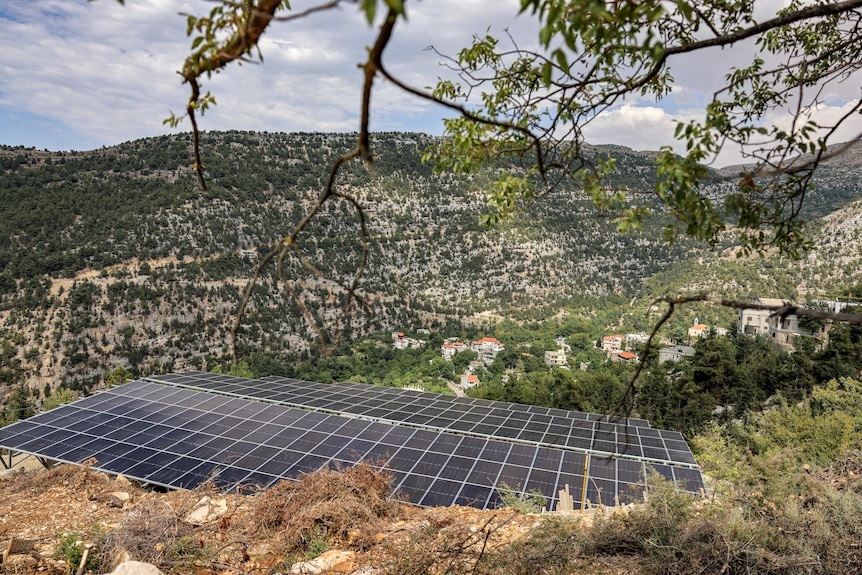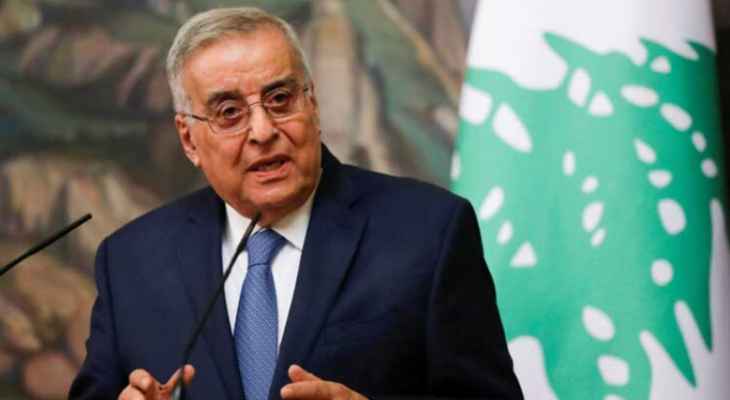By Riva Gold, Editor at LinkedIn News — Google will delete inactive accounts starting in December, it announced in a blog post. …

By Laure Delacloche -- BBC --- Sonia Constantin's fridge and water boiler are plugged in. Sitting on her sofa with her sister, she appreciates the rediscovered comfort of her home in Beirut, Lebanon's capital – now fully supplied with electricity. A Lebanese professor of educational sciences, Constantin decided to invest $6,500 (£5,140) of her savings in nine solar panels and a battery last September. "We are not looking for a life of luxury, we simply want dignity," she tells me. The investment allowed her to unsubscribe from the privately owned diesel-powered generators which supply power to most households in Beirut. "I have since resumed a normal life: I can charge my phone whenever I want."
Lebanon's national grid has struggled to meet the population's full electricity requirements since the country's civil war began in 1975, forcing consumers to rely on expensive neighbourhood generators to fill the gaps. The civil war ended in 1990 but the grid problems continued. The state provider, Electricity of Lebanon (EDL), ceased supplying power altogether in 2021, when it ran out of fuel, plunging the country into near total blackouts. In Beirut, the blackouts continued for over a year and a half, with EDL only able to provide electricity for an average of 3-4 hours per day.

by al-monitor.com -- BEIRUT — The death of a Lebanese man in Emirati custody earlier this month has sparked controversy in Beirut, as his family attempts to retrieve the body while United Arab Emirates (UAE) officials deny any wrongdoing in the case. The spat led to a call between the foreign ministers of Lebanon and the United Arab Emirates over the weekend. This past March, UAE authorities arrested Lebanese citizen Ghazi Ezzedine, 55, along with eight other people including his two brothers, on unknown charges, according to the human rights organization Amnesty International. Local reports say Ezzedine died in police custody on May 4 and was buried in the UAE. The family was only notified days later after his son, Fadel, was asked to identify his body at a cemetery in the UAE. He was only allowed to see his father’s face, while the body was kept covered.
The case of Ezzedine, a Shiite who had been working in real estate in the Gulf nation for 30 years, raised questions about the circumstances of his death. In a statement last week, a committee of family members of Lebanese citizens detained in the UAE claimed that Ezzedine died under torture. “If it is found that his death was indeed unlawful, they must ensure that all those suspected of torture and unlawful killing, including those with command responsibility, are held accountable,” Sima Watling, a researcher with Amnesty International, told The Associated Press last Friday. For its part, the Euro-Mediterranean Human Rights Monitor called for an “immediate and transparent investigation” into the death of Ezzedine. “The UAE authorities had previously been involved in the illegal detention of foreigners, investigating them and detaining them in inhumane conditions, subjecting them to psychological and sometimes physical torture, and deporting them from the country under broad and unfair security pretexts,” Euro-Med Monitor added in a press statement released last Thursday.
By Saundra Latham, Editor at LinkedIn News — What’s a lonely person to do in modern times? Google how to find friends, …
Khazen History


Historical Feature:
Churches and Monasteries of the Khazen family

St. Anthony of Padua Church in Ballouneh
Mar Abda Church in Bakaatit Kanaan
Saint Michael Church in Bkaatouta
Saint Therese Church in Qolayaat
Saint Simeon Stylites (مار سمعان العامودي) Church In Ajaltoun
Virgin Mary Church (سيدة المعونات) in Sheilé
Assumption of Mary Church in Ballouneh
1 - The sword of the Maronite Prince
2 - LES KHAZEN CONSULS DE FRANCE
3 - LES MARONITES & LES KHAZEN
4 - LES MAAN & LES KHAZEN
5 - ORIGINE DE LA FAMILLE
Population Movements to Keserwan - The Khazens and The Maans
ما جاء عن الثورة في المقاطعة الكسروانية
ثورة أهالي كسروان على المشايخ الخوازنة وأسبابها
Origins of the "Prince of Maronite" Title
Growing diversity: the Khazin sheiks and the clergy in the first decades of the 18th century
Historical Members:
Barbar Beik El Khazen [English]
Patriach Toubia Kaiss El Khazen(Biography & Life Part1 Part2) (Arabic)
Patriach Youssef Dargham El Khazen (Cont'd)
Cheikh Bishara Jafal El Khazen
Patriarch Youssef Raji El Khazen
The Martyrs Cheikh Philippe & Cheikh Farid El Khazen
Cheikh Nawfal El Khazen (Consul De France)
Cheikh Hossun El Khazen (Consul De France)
Cheikh Abou-Nawfal El Khazen (Consul De France)
Cheikh Francis Abee Nader & his son Yousef
Cheikh Abou-Kanso El Khazen (Consul De France)
Cheikh Abou Nader El Khazen
Cheikh Chafic El Khazen
Cheikh Keserwan El Khazen
Cheikh Serhal El Khazen [English]
Cheikh Rafiq El Khazen [English]
Cheikh Hanna El Khazen
Cheikha Arzi El Khazen
Marie El Khazen